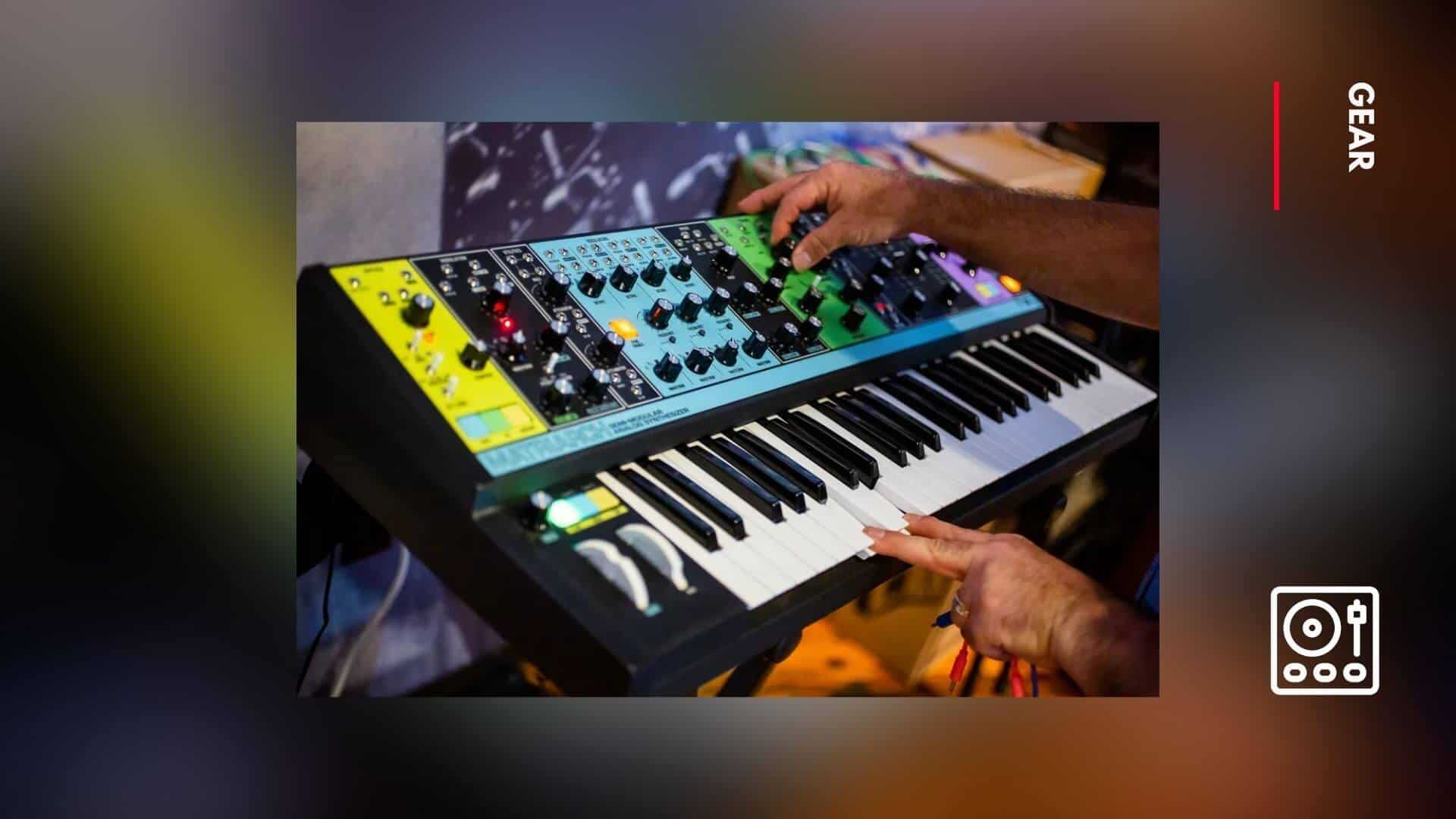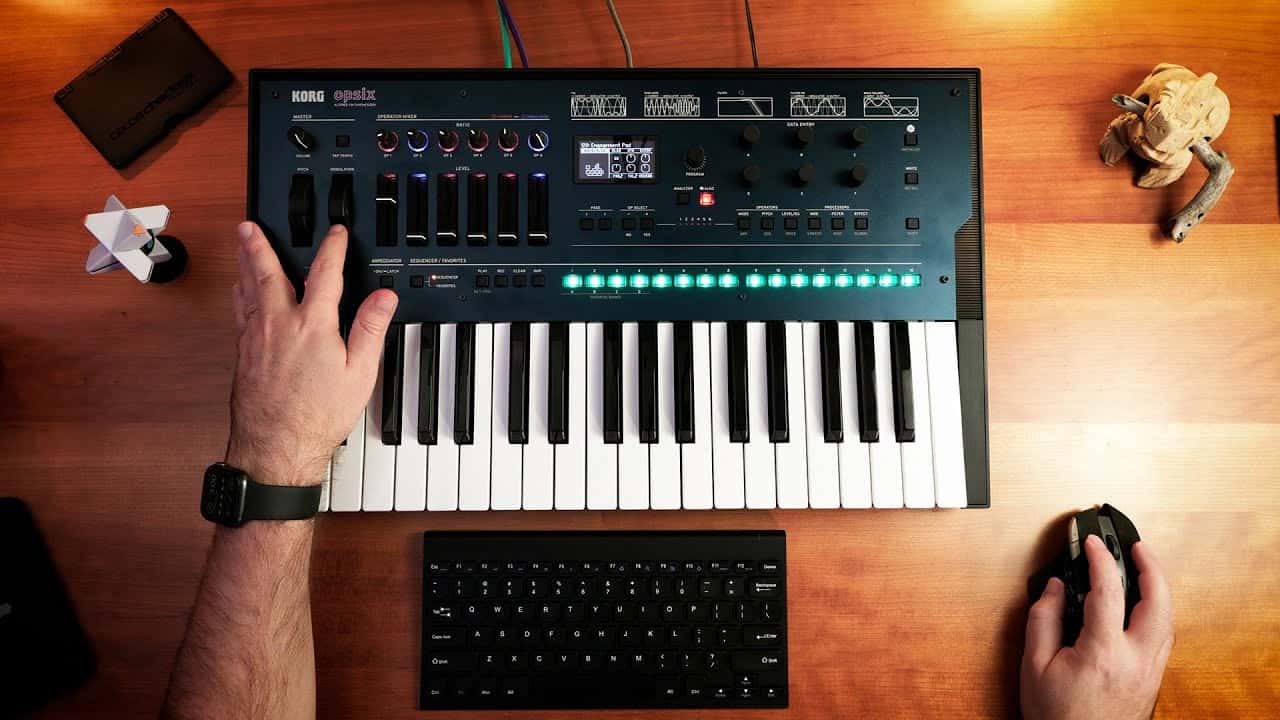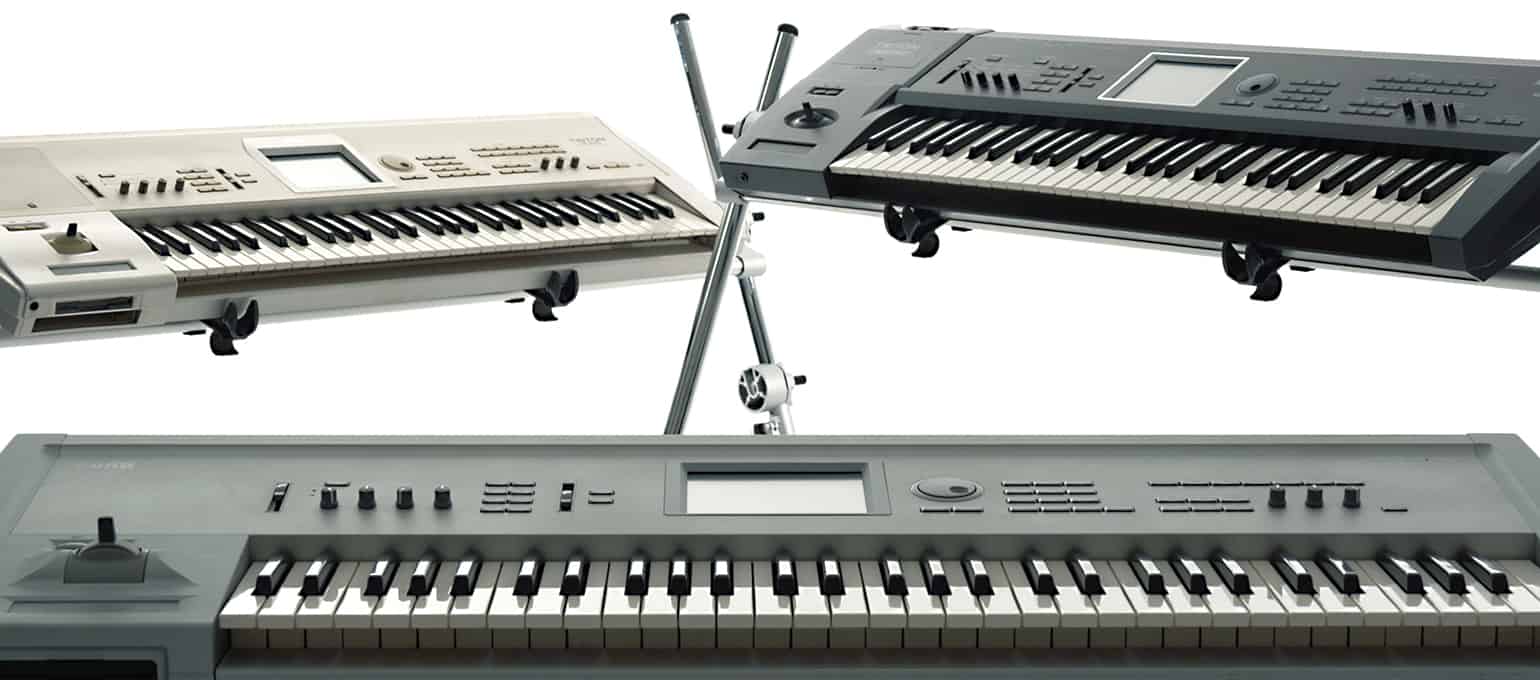

How to pick the right Synth: Reverb expert interview
Getting your hands on your next synth- whether it’s your first or hundredth- is always an exciting moment. There’s nothing quite like it: the eager rush to open the box, the breathless first feel of your hands on the keys, knobs, and switches, the euphoria of finally plugging in and playing. Every gear addict knows exactly what we mean. It’s a beautiful thing to be sure, but it can be difficult to get there. You have to research brands and capabilities, scour the internet or your local stores to find it, and even when you think you’ve found just the right one, it might not work out in the end. Not to fear- We Rave You Tech is here to lend a helping hand, with some wonderful insight from our friends. The good people at online music gear marketplace Reverb have been providing the joy of fresh gear to music-makers since 2013, and, seeing as they know a thing or two about synths and music gear in general, we decided to sit down with Reverb associate editor and synth expert Fess Grandiose to ask him all the questions you need answered in order to find the perfect analog synth for you.
| 20 Best VST Plugins of 2022 – Click here to checkout
We Rave You Tech: What are some of the best brands for synths?
Fess(Reverb Synth Expert): Right now, as far as offering the most options, I would say that Elektron is definitely on the rise. You also have your stalwarts that have been doing their thing for decades now: Roland, Moog, Korg… You also have to throw in the newer brands, or the brands that have been releasing newer types of synthesis: Arturia, Novation… All of these brands are still releasing new synthesizers, new forms of synthesis, or expanding on older ideas in newer forms, for the modern producer. It’s kind of hard to say who’s sitting at the top.
We Rave You Tech: Does price really matter? Is a more expensive synth really better?
Fess: It’s definitely something to factor in. Lots of synths come in lots of different price points. It’s really all about what you want as an artist or individual music-maker. We couldn’t be in a better time to fit almost everything anyone would want in terms of standalone or software synthesis. There are benefits, of course, with higher-end synths, with analog synths. If it’s a vintage synthesizer, some of the circuitry is not even available anymore, which only adds to the character and lore. Even with the sort of renaissance of analog synths within the modular realm and then within some of the newer synths that are out, a lot of the circuitry is hard to get. I’m sure you’re well aware of some of the part shortages that are out there affecting the world of electronics, and it couldn’t be more true than with analog synths or the electronic music instrument world in general. One thing that you do get when you invest in a quality synthesizer is that the value isn’t going to fall too much. Even if you find something that’s not for you, you can get on something like Reverb and resell it.
We Rave You Tech: What are the advantages/disadvantages of analog? What about digital?
Fess: With analog, you definitely have to be aware of what you’re trying to get. If you want to jump into analog synths and you want to buy a Moog synth, you have to be aware that most Moogs that are available are monophonic synths. That’s the sort of thing you have to ask yourself if it’s important if you want to jump into analog. If that’s not important, there’s no better place to start than Moog. Some disadvantages within that analog realm- a lot of analog synths that are purely analog, like Moog, have no way to save your patches or presets. Nowadays, we do have a lot of synths that offer analog synth sound circuitry with oscillators and filters but have digital controls- like the Korg Minilogue series. That way you take advantage of the benefits of digital, like preset libraries. There’s a lot of digital synths that sound fantastic on their own and also in the world of analog modeling. Roland is releasing a lot of their vintage synths in their new digital versions of their classic analog synths. Digital has progressed so much since its introduction in the early 80s- things are sounding a lot better in terms of recreating that analog feel within a digital synth. Digital is definitely more cost-effective. Overall, it’s arguable and all based on you as the artist and what sound is most important to you.
We Rave You Tech: Are there any must-have features in a synth?
Fess: My only must-have is that it is at least somewhat in tune. It kind of goes back to the disadvantages of analog synths- they can lose their tuning over time, especially vintage synths, but sometimes people want that. Korg MS-20s, for instance, are notorious for needing to be re-tuned after so often, especially the original ones. For me, I like it to be ready to play right out of the box. Again, it all depends on what you’re trying to play. Some people need a polyphonic synth to play chords, some people only want a monophonic synth to play lead lines and bass lines.
We Rave You Tech: Any red flags or things to avoid when buying a synthesizer?
Fess: I can’t really say that I like to avoid anything in a synth, but I would just say that if you’re out there buying on the used market, pay attention to the seller’s grading. Some sellers are very open in letting you know if it’s slightly out of tune, or if a pot is a little crunchy, or if a key is missing… just watch out for that.
We Rave You Tech: What’s one of your personal favorite synths?
Fess: A personal favorite is the Korg Opsix. I’ve just come around to understanding FM synthesis, and the Korg Opsix is helping me in that transition because it’s the most comprehensive FM synth I’ve ever used. It’s very easy to make those classic FM bells and basslines, crazy electric piano sounds… you just have to turn a few knobs. It’s also great because it has a randomization function on there that randomizes parameters and makes crazy FM patches at just the click of a button. I haven’t seen many people talk about how great it is, but it’s definitely one of my favorites.

Image Credits: Tefty & Meems
We Rave You Tech: What’s a good option for someone on a budget?
Fess: Definitely stick with one of the big 3; Korg has released a nice line of budget synths that can give you a lot of bang for your buck. Like I mentioned earlier, the Korg Minilogue is a great analog synthesizer with digital controls that won’t cost you $1000. We have a lot of great listings on Korg Minilogues and Monologues- the monophonic version of the Minilogue- and pretty much all of the crazy Korg synths that have come out in the past few years. That would be at the top of my list, but if that’s still too much, Korg has the Volca series, which are standalone devices. The Volca FM, Volca Keys, Volca Nubass, and the Volca Modular- they’re only about a couple of hundred dollars.
| Top 5 affordable VST Synthesizers – Click here to checkout
We Rave You Tech: What’s the best synth for making music today?
Fess: I would recommend going beyond standalone synthesizers and looking at workstations, like the Roland Fantom series, or some of the more legacy workstations like the Korg Triton or the Yamaha Motif, simply because you get a synth engine in those as well as drums, a sequencer, and a sampler… you can basically put together full tracks. There’s also an ever-growing market of groove boxes, which offer you the same. The Novation Circuit Tracks or the Circuit series is a great option in the groove box department. The Roland MC-707 and the MC-101, are great too. There’s also the Korg Electribe.

Image Credit: Korg.com
We Rave You Tech: Any general advice for someone looking to buy a synth?
Fess: Take advantage of the copious amounts of user-made blog posts and forums. And be sure to check out some of the video content that’s out there covering most products that are on the market today… creators like myself take a lot of time to think about the challenges people might face about what type of synth or what type of gear is for them. Use Google! Try to search and follow what you’re looking for. Don’t be afraid to try things- if it doesn’t work out, you could always sell it. As a key piece of general advice- save your boxes. You never know. And if you keep it, how cool would it be to still have the original box ten, twenty years later?
If you don’t already shop with Reverb, we highly recommend you check them out. They’ve got new and used instruments, amps, effects, DJ equipment, and lighting gear. You can even sell your old or unwanted gear with them! It’s the perfect place to find the perfect synth.
Next Article: Top 10 High-Quality Sound Packs in 2022
Featured Image Credit: Cnet.com, Moog


- Arodes cover Interview
- Armin van Buuren: Breathing In [Exclusive Interview]
- Ibiza 2024: What To Expect
- Burak Yeter: A Day In Space [Exclusive]

